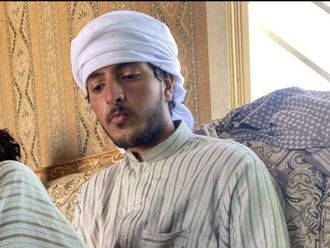Abu Dhabi: A new UAE-based non-profit organisation will work for the protection of children from online abuse using psychiatric, legal, educational, technical and social expertise in cooperation with local and international authorities.
Launched on Sunday in the capital ahead of Safety Internet Day on February 9, Emirates Safer Internet Society E-SAFE announced its vision to become a “sustainable and globally recognised” hub for child protection online by 2021.
Speaking at the launch, Dr Abdullah Al Mehyas, chairman, said that in addition to commonly recognised online risks such as sexual exploitation, blackmail and fraud, ‘e-Terrorism’ also poses a threat.
“There are around 8.8 million internet users in the UAE and 65 per cent of those have smartphones. Those who do not have smartphones are usually children and they use tablets and similar devices. Nowadays, children are born into the internet era and therefore using these technologies comes to them naturally,” Al Mehyas said.
“Some people abuse these impressionable users and use the internet to groom them for sexual and even violent purposes such as killing and bombing of mosques,” he added.
Mira Ebrahim Al Mansouri, an e-Safe board member, said that predators prey on the ‘weakest minds’, drawing them in to perform immoral and inappropriate acts. “We must find the root cause of the problem and it primarily has to do with the way a child is raised. Parents often say that technology has ‘invaded’ their lives when in reality they just need to instil in their children the right mindset and methodology to distinguish right from wrong and this is a collaborative effort that includes parents, families, schools and experts,” she said.
In fact, blocking websites and inappropriate content is only a temporary solution for children under the age of nine, e-Safe CEO Mohammad Mustafa Saidalavi revealed.
“After that age, it is impractical for content to be blocked because we must teach the child to think for him or herself, to practise caution and responsibility,” he said.
During his talks in schools in the capital, Saidalavi said that he had encountered a student who requested him to speak to her parents about the issue. “She told me that someone had tried to groom her online and when she told her parents, their first reaction was to prohibit her from using the internet altogether. She told me that after the issue was resolved, she continues to receive such messages but now refrains from telling her parents about it. Parents must become part of the conversation and must open the door for their children to be honest with them even if that requires parents to receive training on how to use the internet,” he added.
Saidalavi first came up with the concept of e-Safe after attending a Virtual Global Taskforce conference in the capital four years ago and aims at turning e-Safe into a go-to institution for child online safety by 2021.
Online threats to children include:
Child sex predators
Cyber bullying/blackmail
Access to inappropriate content
Child sexual abuse material
Terrorism
Cyber scams/phishing
Child self-generated sexual content
Electronic addiction
Founded by Mohammad Mustafa Saidalavi, E-SAFE has worked with international agencies such as Interpol, Unicef, ITU, EUROPOL and other local authorities such as the Ministry of Interior, the Khalifa Student Empowerment Programme (Aqdar), the Abu Dhabi Ecducation Council, and the National Rehabilitation Centre (NRC), among many others.
The UAE child safety hotline can be reached at 116111
www.esafe.org











